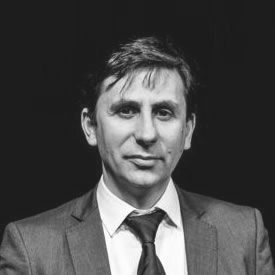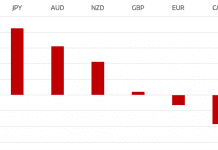
Funds DNA Interview with Peter Kristensen CEO of JP Fund Services and Co-Founder of JP Funds Group Part 2
Funds will become “smaller due to less liquidity in the exchange-traded market, and small funds will continue to outperform the bigger funds” – Peter Kristensen tell us in this second and final part of HedgeThink interview. In the next questions the CEO of JP Fund Services and co-founder of JP Funds Group gives us his precious insights about the alternative investment marketplace, also some down to earth advice for fund managers and valuable considerations about education and ways to work for Fund managers. He also goes through his views on compliance, technology, social media: “Over the last five years, the growing power of social media has set the stage for the biggest shift in the history of finance – people take it for granted today, but is goes much deeper than it appears at first glance”. And to sum up he discusses his views on the financial services and in particular the Future of funds, the fund and hedge fund industry present challenges and opportunities and general trends. Here his answers.
9. How do you think investors can invest and engage further in the alternative investment marketplace?
It is important that investors do the necessary due diligence on any fund they are thinking of investing in. I would look at funds of all sizes not just the larger funds, because there are some really good managers out there doing a fantastic job.
10. Where can managers get the best education and infrastructure for building effective and powerful new funds?
A manager needs to know the right questions to ask before signing a contract with a fund creation company or individual service providers. Its very important to look at the overall structure and not just focus on one aspect of the cost and structure. Instead, they should look at how to make the best structure with the most cost efficient set up overall, while not compromising on quality.
As mentioned earlier, if the manager does not ask the right questions when talking to JP Funds Group, we will still try to make sure that we are as transparent as possible to explain what we know about the structure and costs involved. Many times the devil is in the details such as hedging, conversion, transaction fees, and other fees not mentioned in documents because it is taken for granted that a manager should know; we believe in complete transparency regarding all fees, charges and costs that will be applied to a fund.
11. The financial services industry is going through some disruptive times. How do you see the big picture of investment in a time of accelerated technological change?
Some of the biggest fortunes are made in times of crisis – it is all about seeing the opportunities and focusing on them. I think the money world will look very different in 10 to 15 years time. For example, we might even have one card each that is matched to our DNA and checked via a scan,. That said, we all have the ability to adapt pretty quickly to a changing market. I believe that we should use the tools we have in front of us like social media and digital communications because they are not going to go away, and will only get stronger
12. How do you see the regulatory and compliance landscape for the alternative investment marketplace?
This is a big question. I believe that 10 years ago regulation was a bit weak; today it has become totally the opposite. In future I think we will have to strike a balance between the two, as too little is not helping and too much is not helping, because too many rules just make it more expensive for investors. I believe that some rules and regulations are made for political reasons with limited value to investors.
In addition, we will see new security systems such as DNA recognition being used for new forms of payment to prevent financial fraud, just as we will also see new advances in measuring financial reputation.
13. JP Funds offer a strong, almost-global, non-advisory support service. How do you see this space for the fund industry, and the main areas needing special attention and focus?
I think legal awareness is a very important part of the future because it is not getting easier. It is critical to look at the details in contracts and set-up, and this is why we offer help and support to managers in terms of project management on the legal side, not just at the outset but for as long as the fund / structure is active. We maintain that ensuring legal compliance is a very important function in the Investment management process and as such, it remains a key area of our business. Being non-advisory means that we can offer an open door to discuss our experience and the situation faced provided the limits of our role are clear we dont give legal advice in any form but we can often help by high-lighting and identifying an issue that may need targeted legal advice from an appropriate advisor.
14. A study by Agecroft Partners has identified trends in the increased use of social media by hedge funds. For example, LinkedIn is used by approximately 90 per cent of the hedge funds that have more than USD100 million in assets under management. How do you see the new challenges and also the opportunities associated with it?
I believe that we will see a lot more use of social media to promote a structure/fund indirectly. We only operate with Qualified Investor funds and there are rules for what you can and cant do, but again we can see US lightening up a bit on marketing where QI funds can promote themselves provided there is very careful control on who invests. This could be seen as a complex but I just think this is the new trend within funds – that in the future, funds will be viewed as commodities and a common investment for many types of client levels.
15. What is in your opinion the future of funds?
I think funds will become smaller due to less liquidity in the exchange-traded market, and I strongly believe that small funds will continue to outperform the bigger funds. I also think we will see many more funds being created and investors getting more and more comfortable with funds due in some part to better regulation.
In order to educate managers about the industry and what is going on with regulation, rules, trading setups and so on, we initiated a regular event called The Future of Funds in collaboration with banks, brokers, lawyers, accountants, advisers, and the media. We have held several events the last 12 months in Zurich, Geneva, Lugano, London and Sao Paulo; we are planning events in Copenhagen, Moscow and London for the second half of 2014.
16. What are the most innovative areas to look at currently?
We see a lot of changing areas, and we will see a new financial world in the next years. Currently, there is a lot of interest in private equity funds and venture funds, and in terms of structures the industry as a whole is facing a seismic shift. New innovations in finance and technology, Bitcoin, social media, and crowd-funding are creating new opportunities for the industry as a whole, and will disrupt further the past and existing financial DNA.
In particular, I would like to highlight the innovative and disruptive power of bitcoins and crypto currencies as being something that is likely to change the entire industry.
Over the last five years, the growing power of social media has set the stage for the biggest shift in the history of finance – people take it for granted today, but is goes much deeper than it appears at first glance. A few years ago, who would have imagined the highest value companies in the world would be IT related and lets not forget that smart phones, Facebook, Twitter and even Google did not exist more than about 15 years ago.
Big, global, innovative companies, many of them from the tech industry with big cash flows will create funds for that cash, and are creating new opportunities for their assets that will be competing with the traditional banking and financial industry. As some politicians try to stop innovation in the financial industry these companies will push boundaries and open new opportunities.
For retail and private investors, crowd-funding is proving to be a game-changer and as it becomes more successful it will start changing the way in which politicians and regulatory bodies look at investment, but crowd-funding can be an efficient way for SMEs to fund a project or company since the banks appear so conservative when supporting new ideas.
17. What trends are you seeing moving forward in terms of funds and the fund industry?
Fund managers are very good at adapting to the market. They are trend followers but the market is evolving quickly and fund managers have the ability to move faster and adapt to this dynamic market due to their size and capacity for change. Funds will have several strategies and will move away from the one big flag ship model. The present challenges in regulation and technology will also make it possible for small and mediumsized funds to progress and grow faster.
Asia (particularly China, India, South Korea, and Malaysia) are going to be growing markets going forward and this is where a lot of the industry growth will be happening, particularly as investors become more comfortable with funds; its certainly a part of the world that has financial capacity at the moment.
18. What is the main advice you give to investors, hedge funds, and fund manager wannabes?
It is very important for new funds and upcoming investment managers to know what they want to achieve and look at the long-term picture. They will also have to choose the right companies with credibility and multiple services and capabilities.
Investors and hedge funds will also need to work with firms with a global network and reach. They will have to be very focused on outsourcing different areas of business to partners, and focus on what they are really good at. Creating and running a fund is in effect managing a start up and going forward as a company. It is key to get the set up right and not to compromise on quality and the relationship with clients.
On the investor side it is important to diversify and leverage the quality of relationships and products. Make sure that you have the right balance between different products. Big organisations have big costs and can be slow to operate, while smaller organisations are nimble and more able to change – while the markets will continue to move faster than ever. Due diligence is key, investors need to have a really good understanding of the fund they are going to invest in, what the safeguards are etc.
The rules for retail funds are a different beast; a retail investor will not be able to do as much as the qualified investor due to existing and impending rules and regulations. The risk profile set by regulators for retail funds requires much more complexity and rigidity in the way of set-up and back-up infrastructure to leverage the present market landscape and the challenges it presents.
The biggest advice for fund manager wannabes is that you have to love what you do. Never let the money rule, but the passion. And very important, discipline – discipline and hard work is everything. Finally, you should always look at the opportunities and not just focus on the negatives the heavy regulatory framework can cause the wrong balance and focus.
Interview with Peter Kristensen CEO of JP Fund Services and Co-Founder of JP Funds Group Part 1

Dinis Guarda is an author, academic, influencer, serial entrepreneur and leader in 4IR, AI, Fintech, digital transformation and Blockchain. With over two decades of experience in international business, C level positions and digital transformation, Dinis has worked with new tech, cryptocurrencies, drive ICOs, regulation, compliance, legal international processes, and has created a bank, and been involved in the inception of some of the top 100 digital currencies.
Dinis has created various companies such as Ztudium tech platform a digital and blockchain startup that created the software Blockimpact (sold to Glance Technologies Inc) and founder and publisher of intelligenthq.com, hedgethink.com, fashionabc.org and tradersdna.com. Dinis is also the co-founder of techabc and citiesabc, a digital transformation platform to empower, guide and index cities through 4IR based technologies like blockchain, AI, IoT, etc.
He has been working with the likes of UN / UNITAR, UNESCO, European Space Agency, Davos WEF, Philips, Saxo Bank, Mastercard, Barclays and governments all over the world.
He has been a guest lecturer at Copenhagen Business School, Group INSEEC/Monaco University, where he coordinates executive Masters and MBAs.
As an author, Dinis Guarda published the book 4IR: AI, Blockchain, FinTech, IoT, Reinventing a Nation in 2019. His upcoming book, titled 4IR Magna Carta Cities ABC: A tech AI blockchain 4IR Smart Cities Data Research Charter of Liberties for our humanity is due to be published in 2020.
He is ranked as one of the most influential people in Blockchain in the world by Right Relevance as well as being listed in Cointelegraph’s Top People In Blockchain and Rise Global’s The Artificial Intelligence Power 100. He was also listed as one of the 100 B2B Thought Leaders and Influencers to Follow in 2020 by Thinkers360.




































